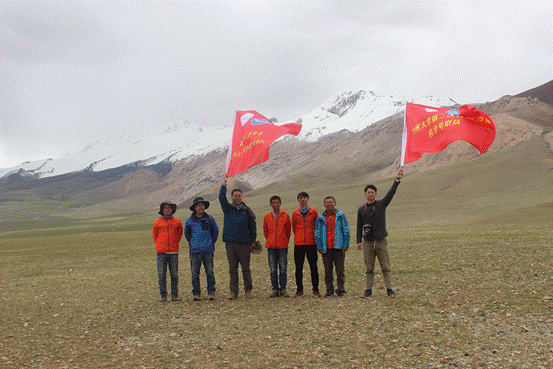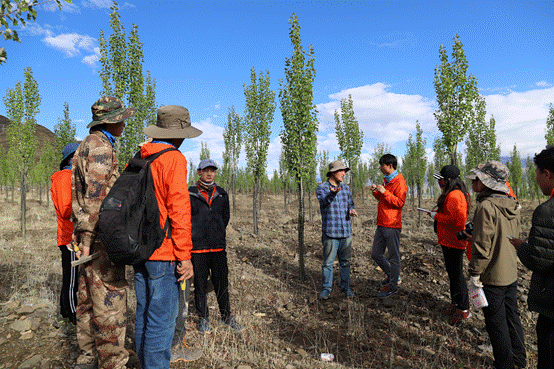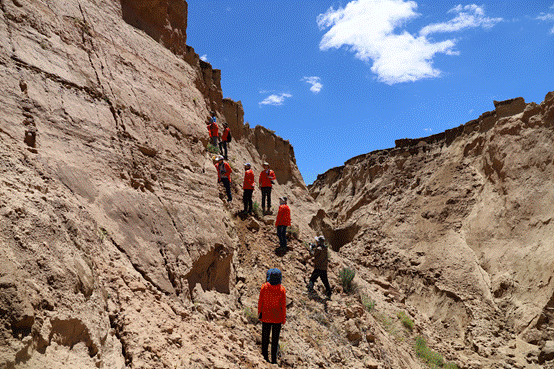during the second tibetan plateau scientific expedition and research (step), the research team of lanzhou university completed the work of field investigation on the earth surface and ice-snow dust investigation of middle and upper reaches of theyarlungzangbo river, located in the southern tibetan plateau ended july 30th, 2019. this teamwho spent three weeks stared theinvestigation in lhasa-shannan area and then went to ali area following theyarlungzangbo river valley. the investigation was organized by professor dunshengxia, associate professor shengliyang and associate professor xinwang, whoare all from the college of earth and environmental sciences, lanzhou university.doctoral candidate, zhiyongling, shuyuanwang, junhuaiyang, yuxuanchen, master students guoqiantang, yuanlongluo and li liu participated in the field investigation.

the yarlungzangbo river originates from jemayangzong glacier and flows between the himalayas and the kailasrange.it has a beautiful name of “polar river” because of the highest altitude in the world.the semi-arid climate and complexgeomorphology make the aeolian deposit in the valley become the main dust source in the southern tibetan plateau, causing anegative influenceon the ecological environment and human activities.the purpose of this investigation was to clarify the spatial contribution, sedimentary characteristics and, matter sources and the age of the dust over earth surface in the area, and then to analyze the influence on the earth surface dust from the climate change and human activities.


a large quantity of valuable information, database and samples were accumulated in the investigation, which would guarantee the successful conducting of the future study. the step, led by the chinese academy of science, was launched in 2017. as an important participating institution, lanzhou university, together with other outstanding research institutions, has taken the special research task of “dust aerosol and theireffects on climate environment”. this field investigation is a significant part of the special research task.